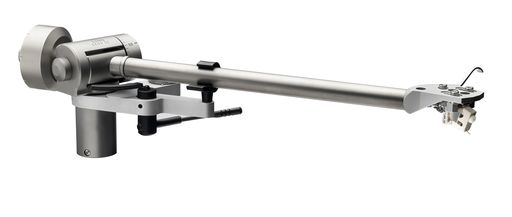EKOS SE
Ekos SE is Linn’s flagship tonearm, designed to nurture your vinyl and extract the maximum information from your cherished vinyl collection.
Setting a new performance benchmark, Ekos SE features advanced materials carefully selected for their mechanical properties, low resonance characteristics and ultimate sound performance, to extract even more music from your vinyl collection. These materials include a machined titanium arm tube to reduce resonance within the arm and a stainless steel bearing housing which helps reduce unwanted tonearm movements.
Every Ekos SE tonearm is built to last using the latest manufacturing techniques and handcrafted to the highest quality standard, so that you can continue to enjoy your vinyl collection for decades to come.
Ekos SE also comes with T-Kable, Linn’s low-loss cable which protects the audio signal the audio signal in transmission to the pre-amplifier, getting you even closer to the original recording.
DESIGN FOCUS ON THE EKOS SE BEARING HOUSING
In the development of the Ekos SE virtually every component has changed, however we will focus on the bearing housing. The horizontal bearing housing has undergone extensive modification, however the primary engineering goals have remained the same; the bearing assembly must be very rigid, resonance free, temperature stable and free from play whilst maintaining extremely low levels of friction.
The improvements we have made over the original Ekos tonearm include machining the bearing mating surfaces to an even higher tolerance and better surface finish. This improves the fit between the bearings and the housing which ensures minimum friction. All mounting and assembly holes are finished to the highest standards and where possible have been moved outside the central bearing area, ensuring a stress free assembly that will not distort once assembled into the main arm unit.
The wall thickness of the bearing assembly has been increased approximately three fold. This increases the strength and also considerably reduces resonance throughout the arm. Reduction in the number of components ensures that the arm is mounted directly to the arm collar rather than being mounted via an additional tube assembly. The strength of the single component avoids the risk of distortion and ensures minimum loss of information when locked together.
